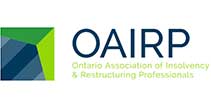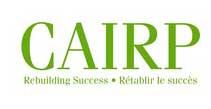Bankruptcy is a legal process that can provide a fresh start for individuals and businesses struggling with overwhelming debt. If you find yourself in a situation where bankruptcy seems like the best option, choosing a reliable and trustworthy bankruptcy trustee like YanchDey will give you peace of mind and superior results.
Understanding Bankruptcy in Canada
Before diving into the process of choosing a bankruptcy trustee, let’s briefly understand what bankruptcy entails in Canada and the role of a trustee in this process. Bankruptcy is a legal declaration that an individual or business is unable to pay off their debts as they become due. It provides relief from overwhelming debt and gives debtors a chance to rebuild their financial lives.
A bankruptcy trustee, also known as a Licensed Insolvency Trustee (LIT), is a professional who plays a crucial role in the bankruptcy process. Their primary responsibility is to help debtors navigate through the complexities of bankruptcy, ensuring compliance with relevant laws and regulations. They act as intermediaries between the debtor and the creditors, overseeing the administration of the bankruptcy estate and distributing assets fairly.
Factors to Consider When Choosing a Bankruptcy Trustee
Choosing the right bankruptcy trustee is vital for a smooth and successful bankruptcy process. Consider the following factors when making your decision:
Accreditation and licenses: Ensure that the trustee you choose is licensed and accredited by a recognized regulatory body, such as the Office of the Superintendent of Bankruptcy (OSB) in Canada. This guarantees their qualifications and adherence to professional standards.
Experience and expertise: Look for a trustee with substantial experience in handling bankruptcy cases. Their expertise in the field will ensure they can navigate complex situations and provide you with the best possible guidance.
Reputation and client testimonials: Research the reputation of potential trustees by checking online reviews and client testimonials. Feedback from previous clients can give you insights into their professionalism, communication skills, and overall client satisfaction.
Meeting and Assessing Bankruptcy Trustees
Once you have identified a few potential trustees, it’s crucial to meet them in person and assess their suitability for your needs:
Initial consultation and assessment: Most bankruptcy trustees offer a free initial consultation. Take advantage of this opportunity to discuss your financial situation, ask questions, and gauge their understanding of your unique circumstances.
Asking relevant questions: Prepare a list of questions to ask the trustee during the consultation. Inquire about their experience, the bankruptcy process, and any concerns specific to your situation. Their responses will help you assess their knowledge and communication style.
Trustee’s communication style and availability: Consider the trustee’s communication style and their availability to address your concerns and questions throughout the bankruptcy process. Effective communication is essential for a smooth and stress-free experience.
Trustee’s Professionalism and Ethical Standards
Consider the following factors to ensure the trustee maintains professionalism and ethical standards:
Professional associations and certifications: Check if the trustee is a member of professional associations such as the Canadian Association of Insolvency and Restructuring Professionals (CAIRP). Membership indicates their commitment to professional development and adherence to industry standards.
Ethical conduct and conflict of interest: Inquire about the trustee’s ethical code of conduct and their policy on conflict of interest. It’s essential to choose a trustee who prioritizes your best interests above any conflicting relationships.
Trustee’s commitment to the client’s best interests: Assess the trustee’s approach and willingness to explore alternatives to bankruptcy if appropriate. A trustee who genuinely cares about their clients’ well-being will explore all available options before recommending bankruptcy.
Making the Final Decision
To make an informed decision when choosing a bankruptcy trustee:
Trusting your instincts: Pay attention to your gut feeling after meeting and interacting with potential trustees. Trust is crucial in this professional relationship, and choosing someone you feel comfortable with is vital.
Seeking multiple opinions: Don’t hesitate to consult with more than one trustee before making your final decision. Different perspectives can help you gain a comprehensive understanding of your options.
Making an informed choice: Consider all the factors discussed above, weigh the pros and cons of each trustee, and make an informed choice that aligns with your specific needs and goals.
Bankruptcy: Frequently Asked Questions
Will bankruptcy affect my credit score?
A: Yes, bankruptcy will have a significant impact on your credit score. It will remain on your credit report for several years, making it challenging to obtain new credit. However, bankruptcy provides an opportunity to get a fresh start, dramatically reduce your stress and rebuild your credit over time.
What is the cost of hiring a bankruptcy trustee in Canada?
A: The cost of bankruptcy varies on an individual basis, taking into account factors such as monthly income, expenses, family size, and assets. Generally bankruptcy costs just over $2,000. Without specific details pertaining to one’s unique situation, it is impossible to provide exact figures regarding the costs involved.
What information do I need to provide to a bankruptcy trustee?
A: When meeting with a bankruptcy trustee, be prepared to provide detailed information about your debts, assets, income, expenses, and financial history. This information helps the trustee assess your situation and determine the best course of action.
How long does the bankruptcy process typically take in Canada?
A: The duration of the bankruptcy process varies depending on individual circumstances. Generally, it lasts for nine months for a first-time bankruptcy discharge. However, the length can be extended if certain conditions apply.
Can I keep any assets if I file for bankruptcy in Canada?
In bankruptcy you lose or surrender non-exempt property of value the the trustee. The Ontario government sets exemption limits for personal property. In bankruptcy you do not lose property under these limits:
- vehicles over $$7,117 in value
- work tools over $11,300 in value
- personal furniture & equipment over $14,180
- farm equipment over $31,379 in value
Property under these levels including personal property such as clothing and items of no real cash value, are exempt and not surrendered in bankruptcy.




Comments are closed.